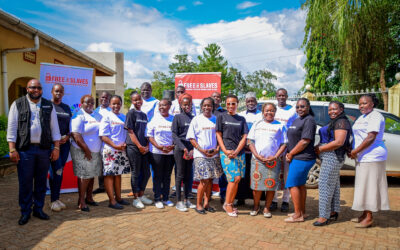Three major U.S. business associations have asked a federal court to block a new corporate disclosure requirement that would reduce slavery in central Africa, according to news reports in the Wall Street Journal and Compliance Week.
The U.S. Chamber of Commerce, National Association of Manufacturers and Business Roundtable want the court to overturn the “conflict mineral” rule approved by the U.S. Securities and Exchange Commission (SEC) in August.
Enactment of the rule was a watershed moment for the corporate transparency and anti-slavery movements. It requires companies to investigate their supply chains and disclose if their products contain minerals from conflict areas in the Democratic Republic of Congo (DRC) or surrounding areas. If their products do contain conflict minerals, companies have to report what they’re doing to ensure the profits don’t go to abusive armed groups in eastern Congo.
So-called “conflict minerals” from Congo not only fuel one of history’s deadliest wars. Free the Slaves research has documented that rebel groups and army commanders force Congo residents into slavery at many mining sites.
Congress directed the SEC to develop the new rule as part of the Dodd-Frank Wall Street Reform and Consumer Protection Act. Four minerals are targeted for corporate disclosure: tin, tungsten, tantalum and gold. All are commonly used to manufacture electronic devices – from cell phones and televisions to computers and high-tech components.
Business groups have complained that complying with the rule will be expensive, but they have not yet disclosed the legal reasoning for their court challenge, according to news reports. The SEC has vowed to defend the rule.
The legal action “pits companies against customers,” according to FTS Programs Director Karen Stauss.
“Consumers and investors more and more want to know that they’re not buying into widespread global slavery and other human rights horrors like those unfolding in DRC,” Stauss says. “It’s a shame that instead of trying to improve their products and their brands — and the world in the bargain – these associations are trying to drive all companies to a lowest common denominator of corporate irresponsibility.”
FTS is pushing for broader accountability standards that would affect all products and raw materials, not just four minerals from central Africa. The SEC rule is an important step for creating a compliance mechanism for American companies.
You can see the impact of conflict-mineral slavery on the children of Africa in our short documentary: Slavery in Your Pocket.


